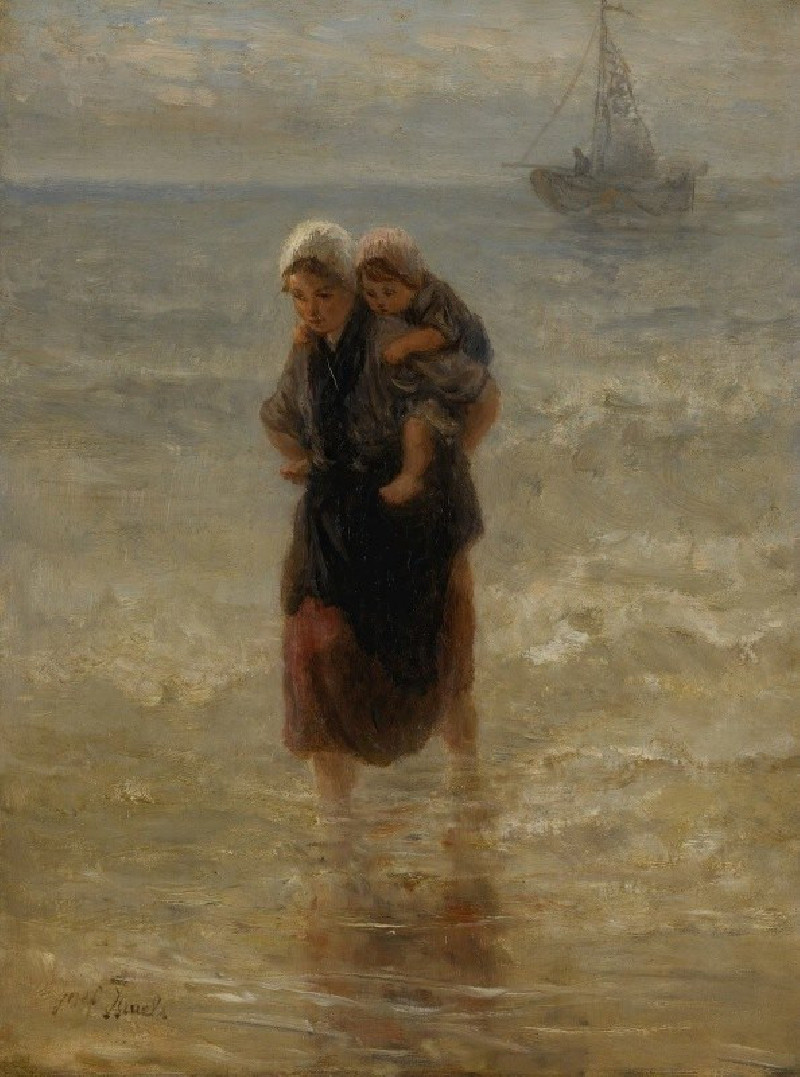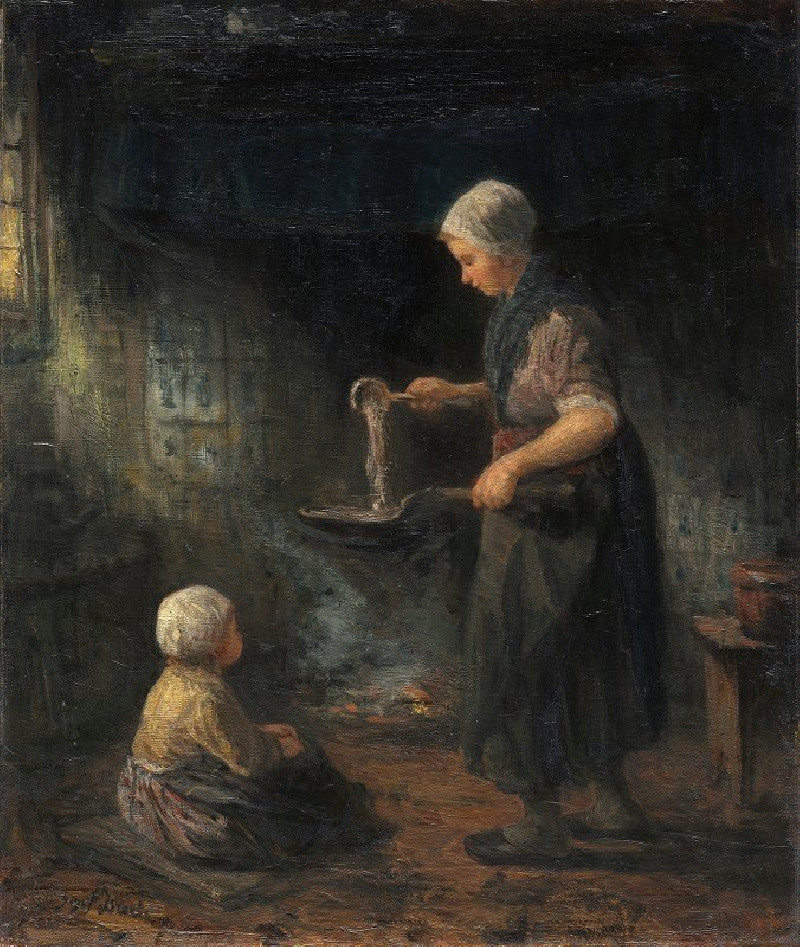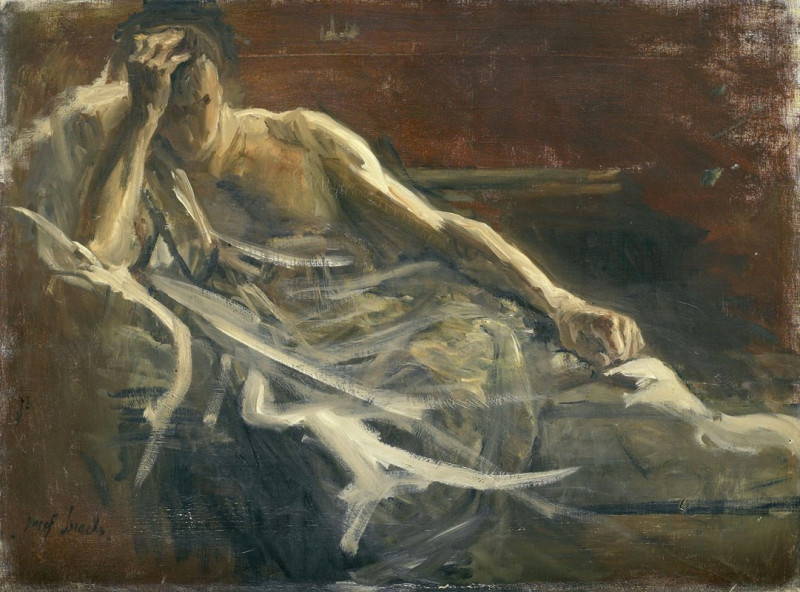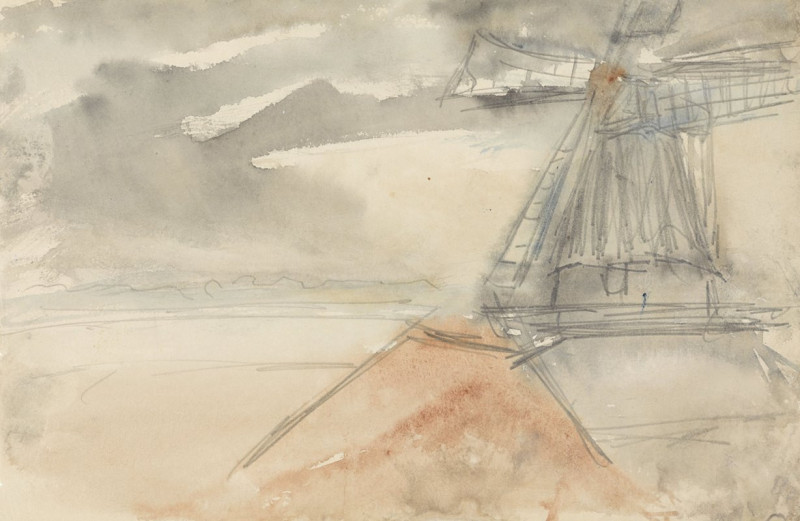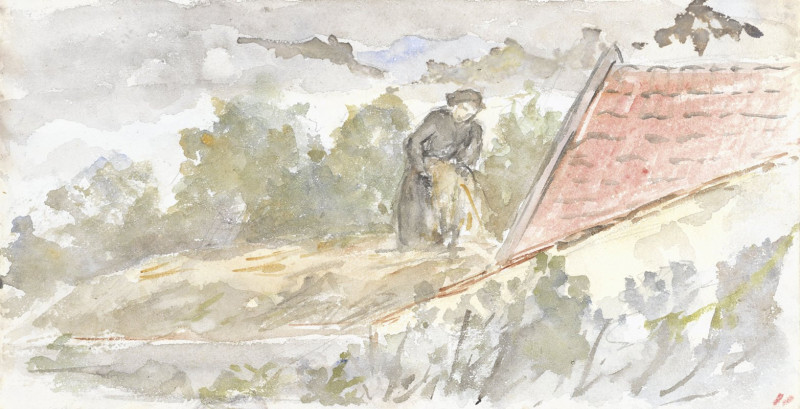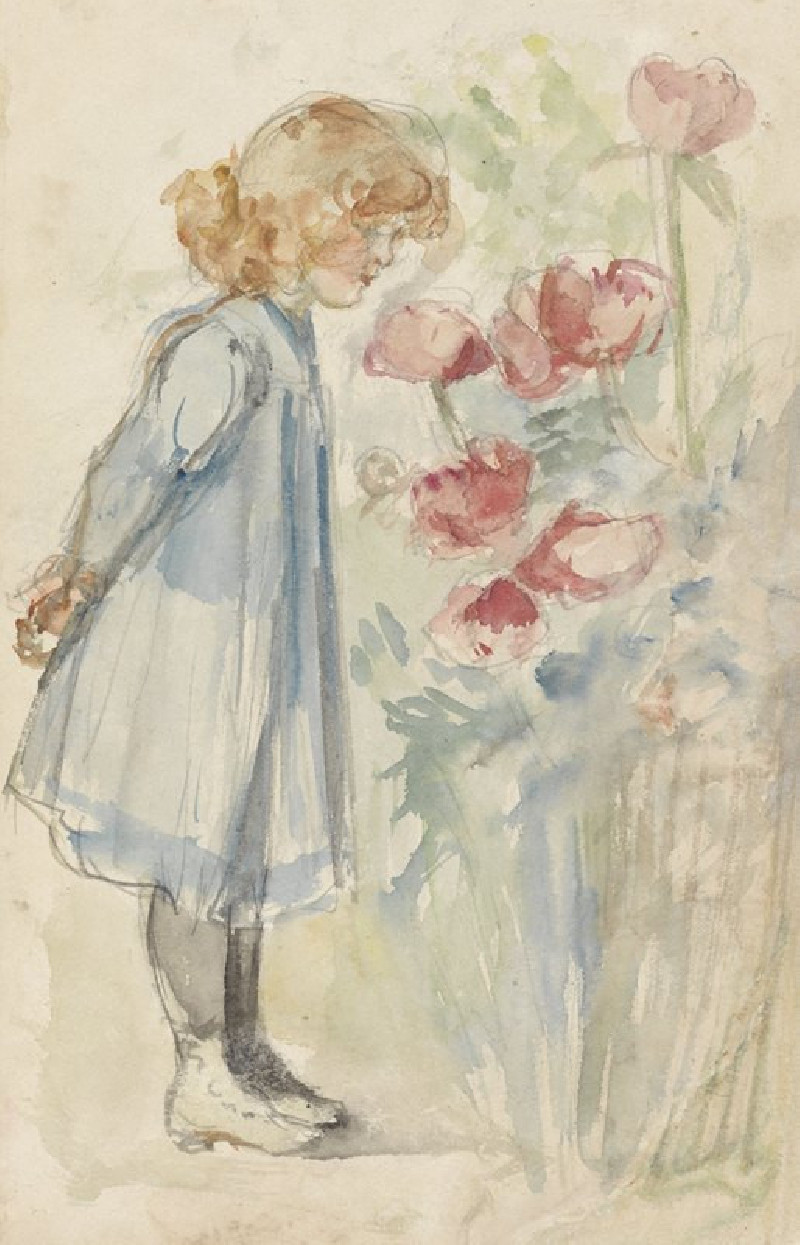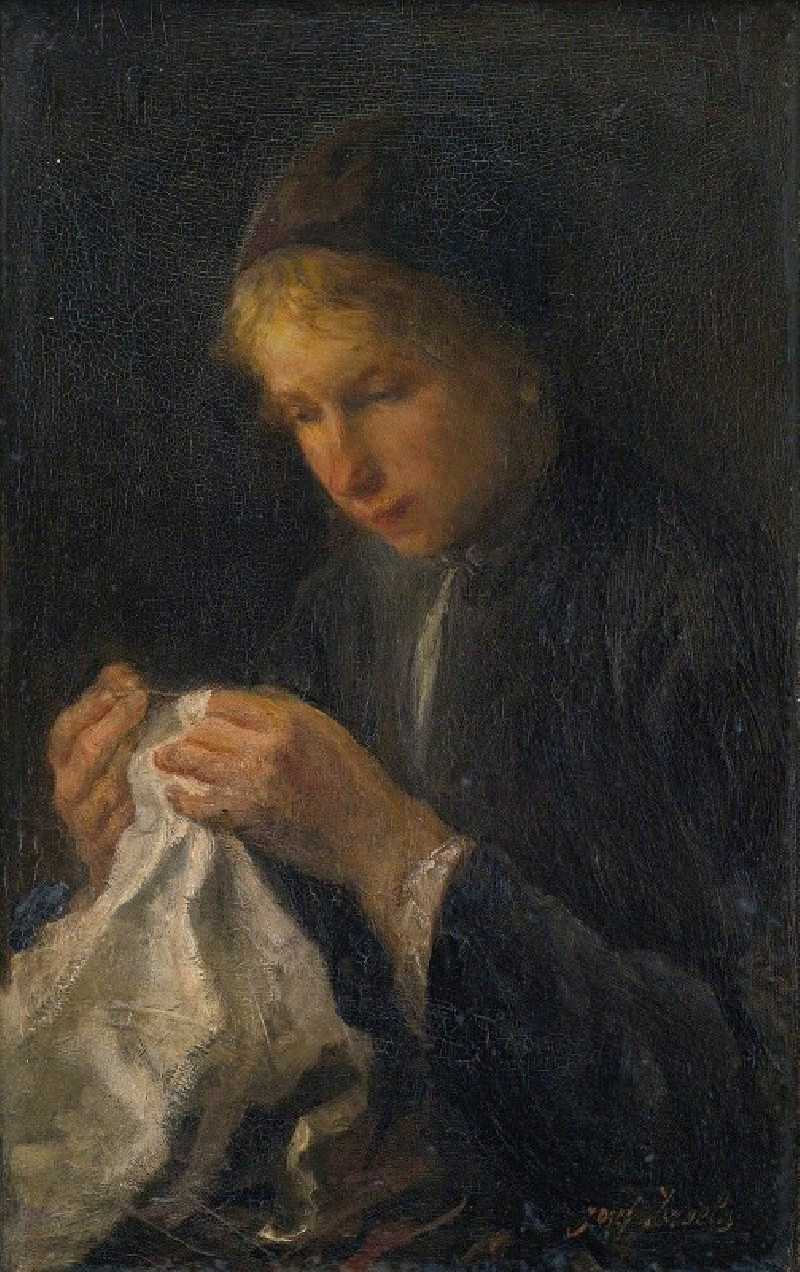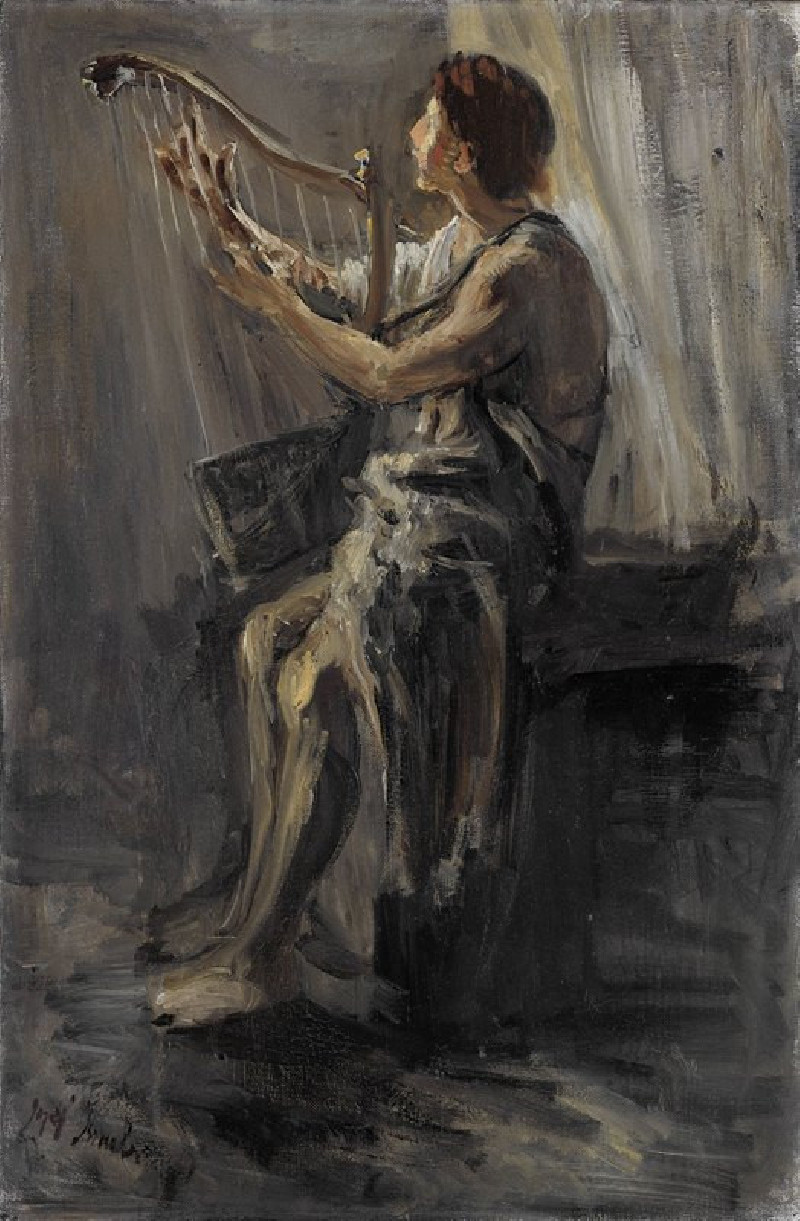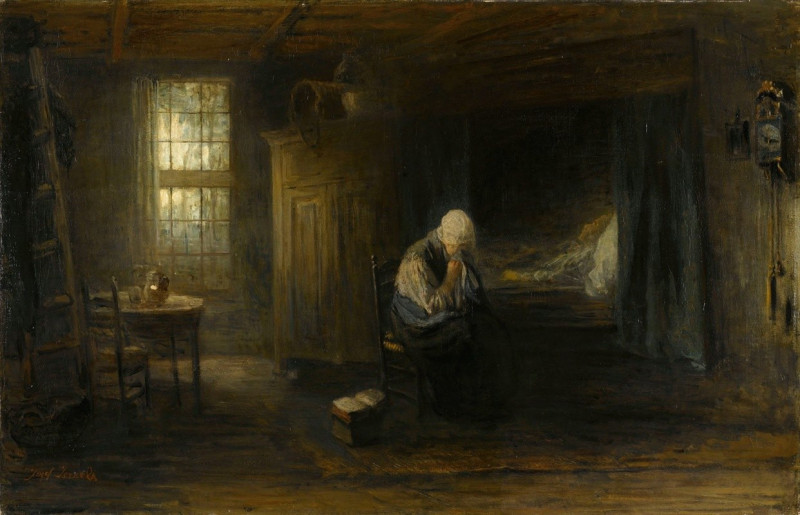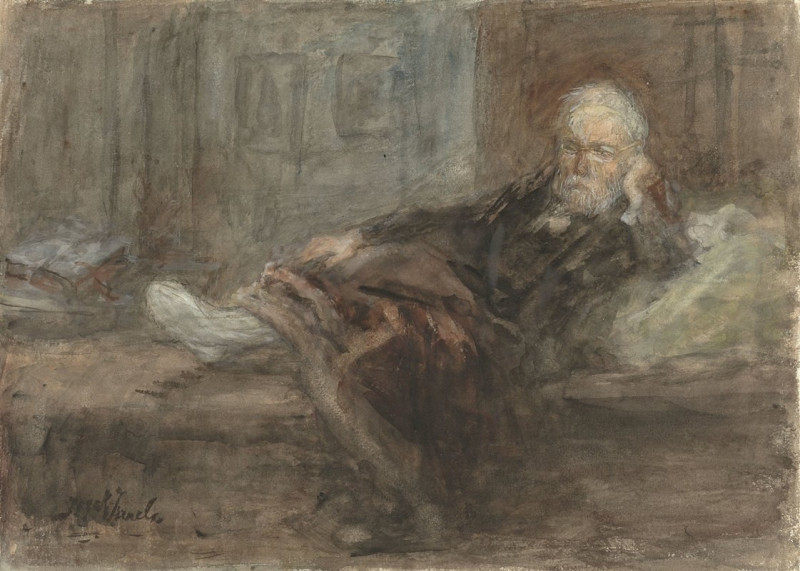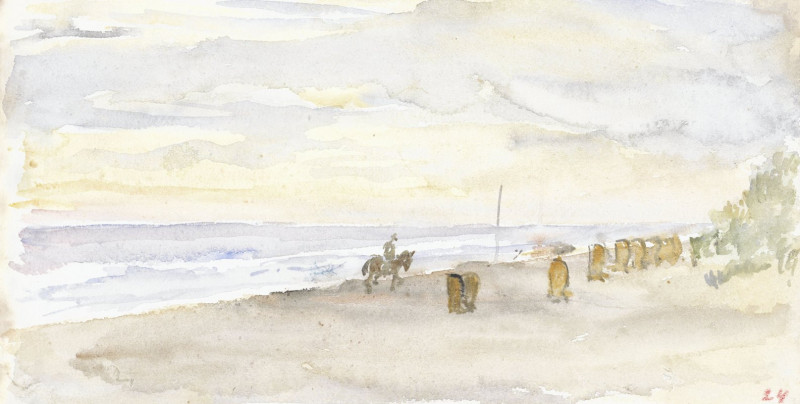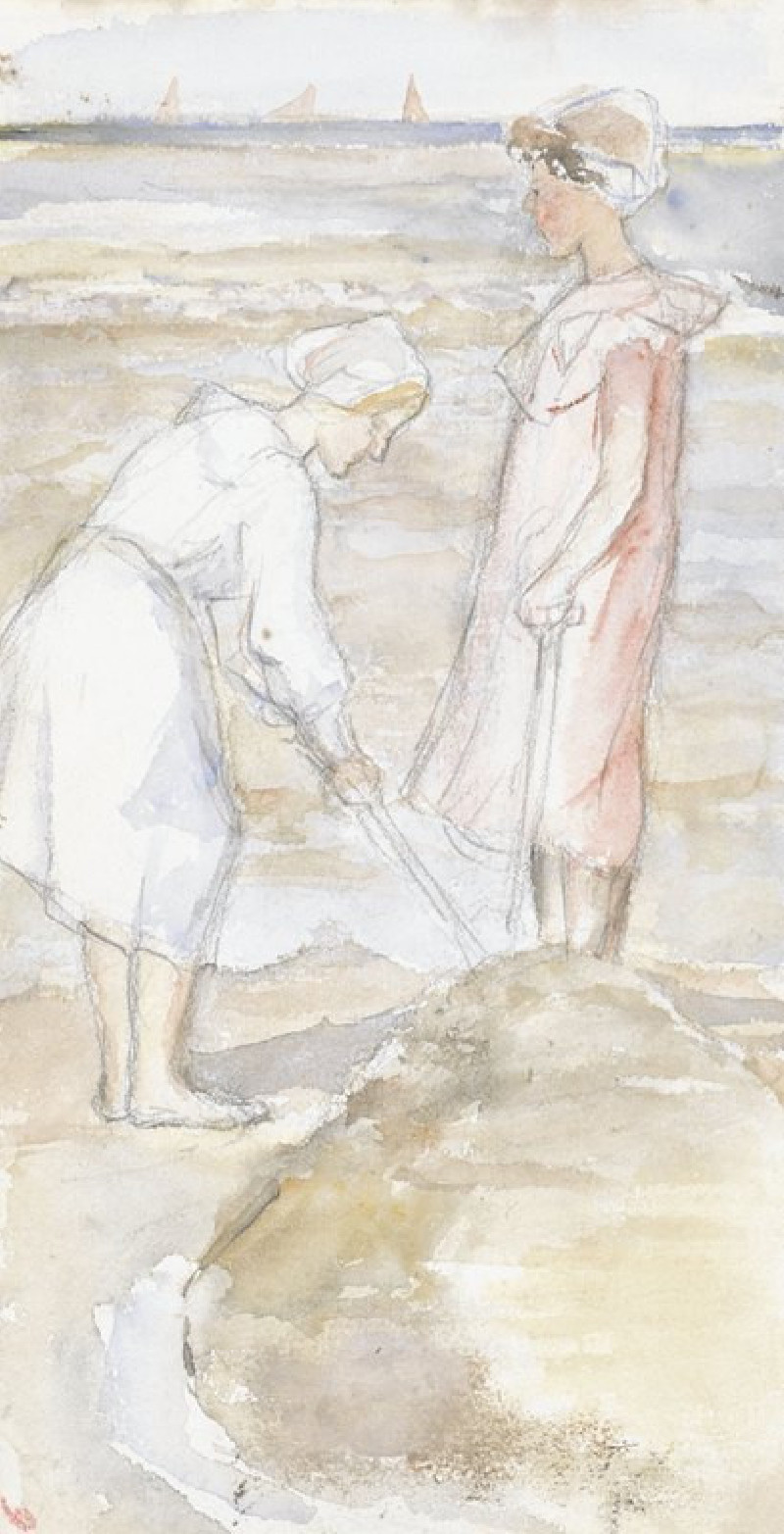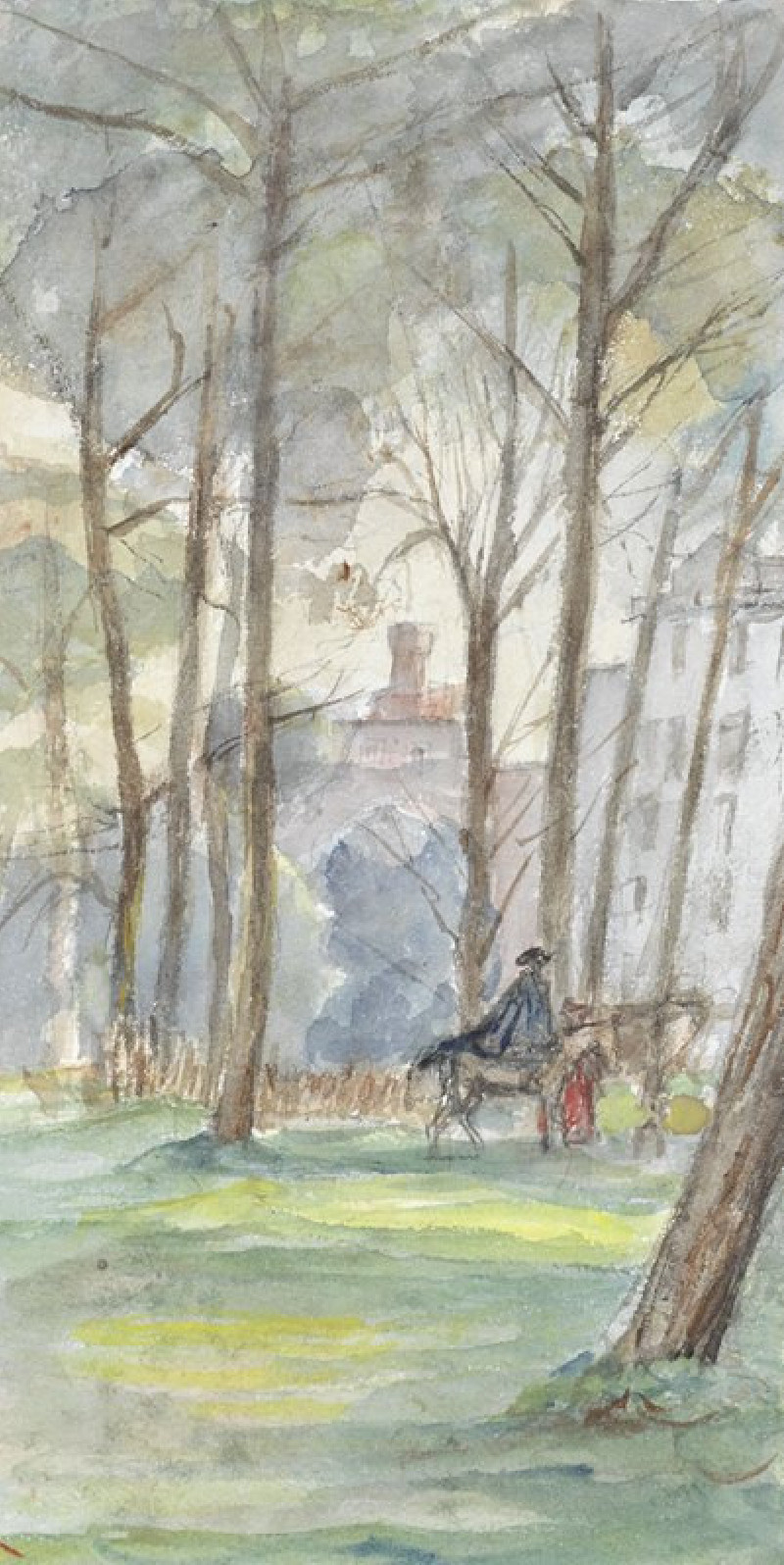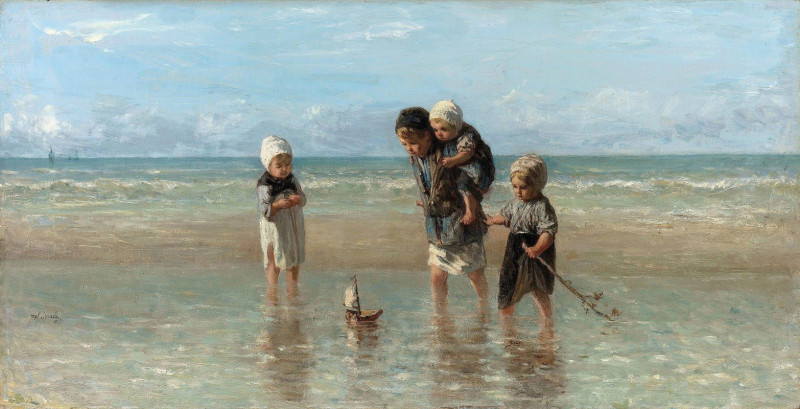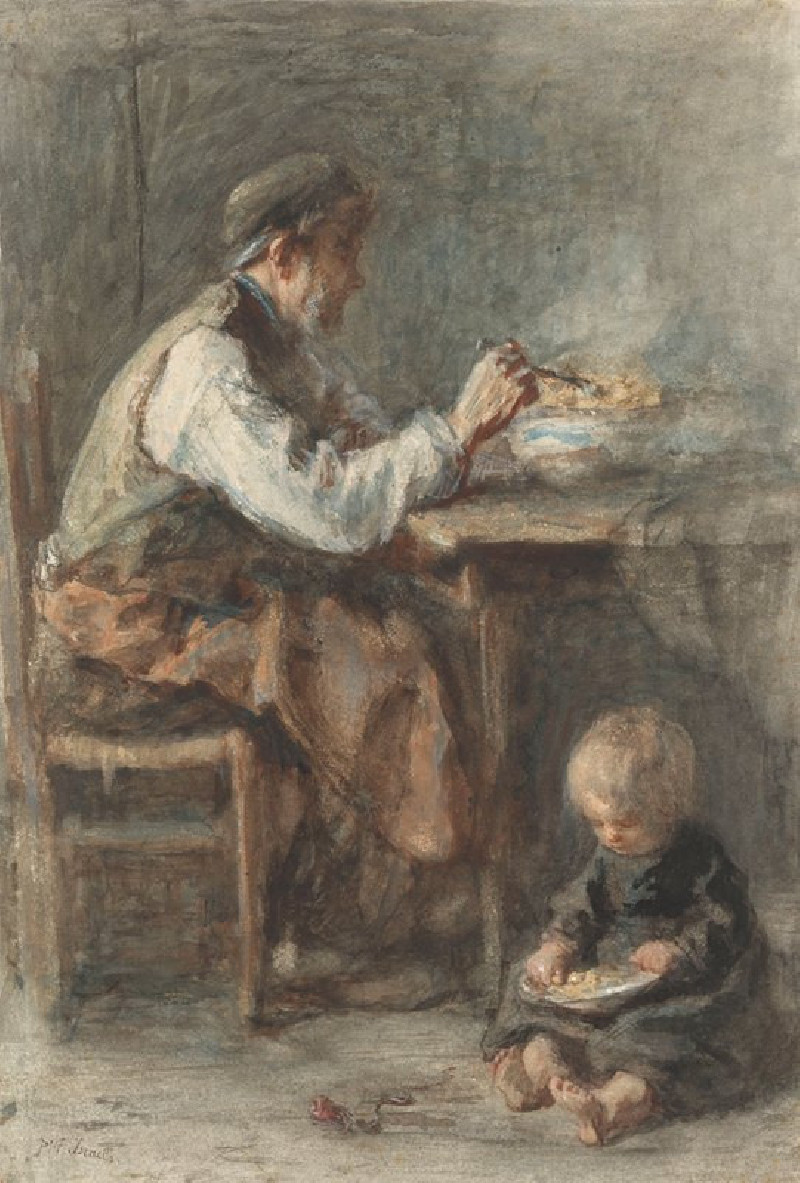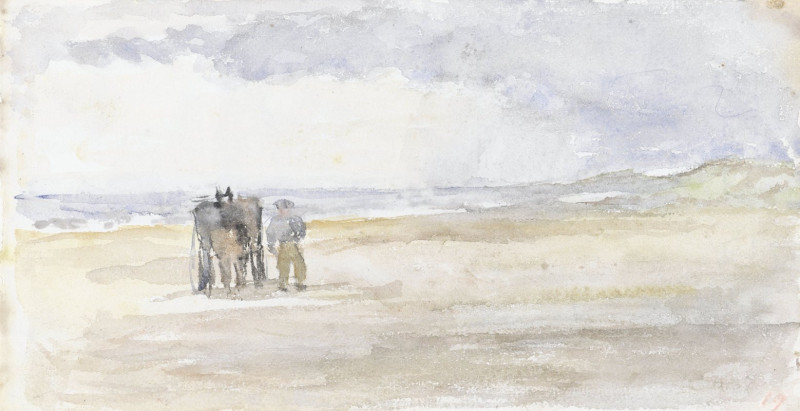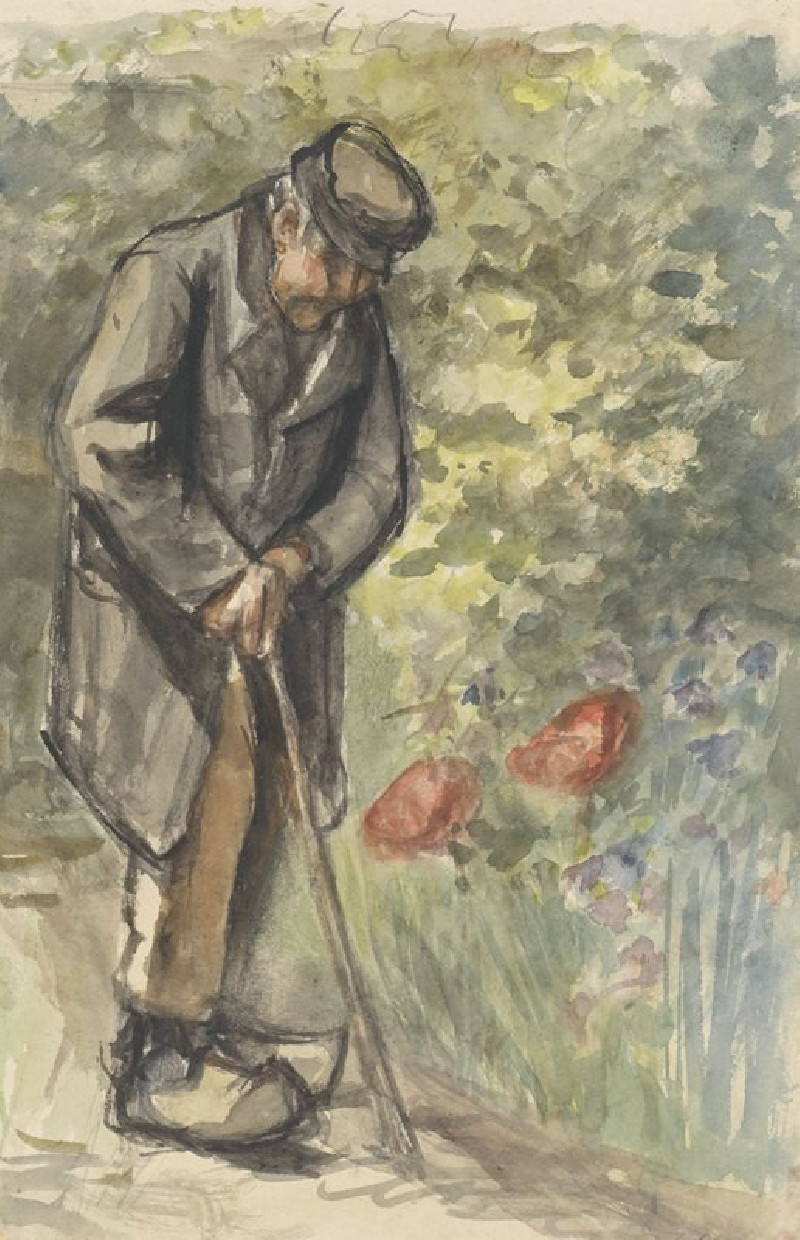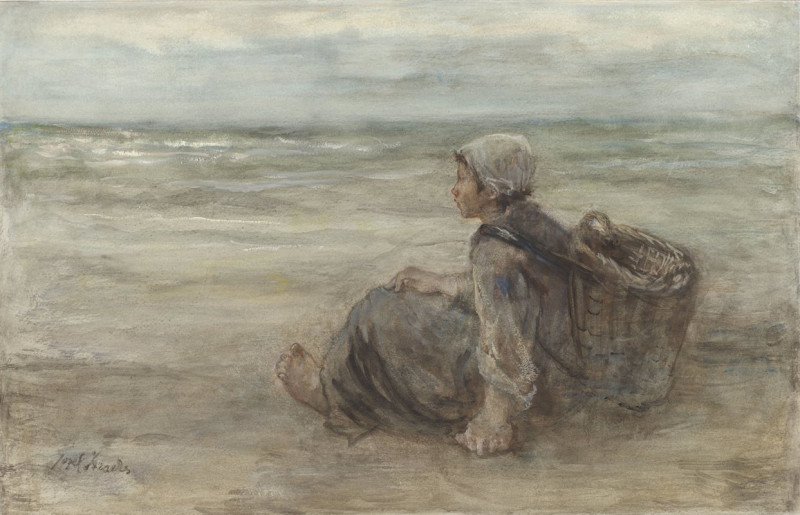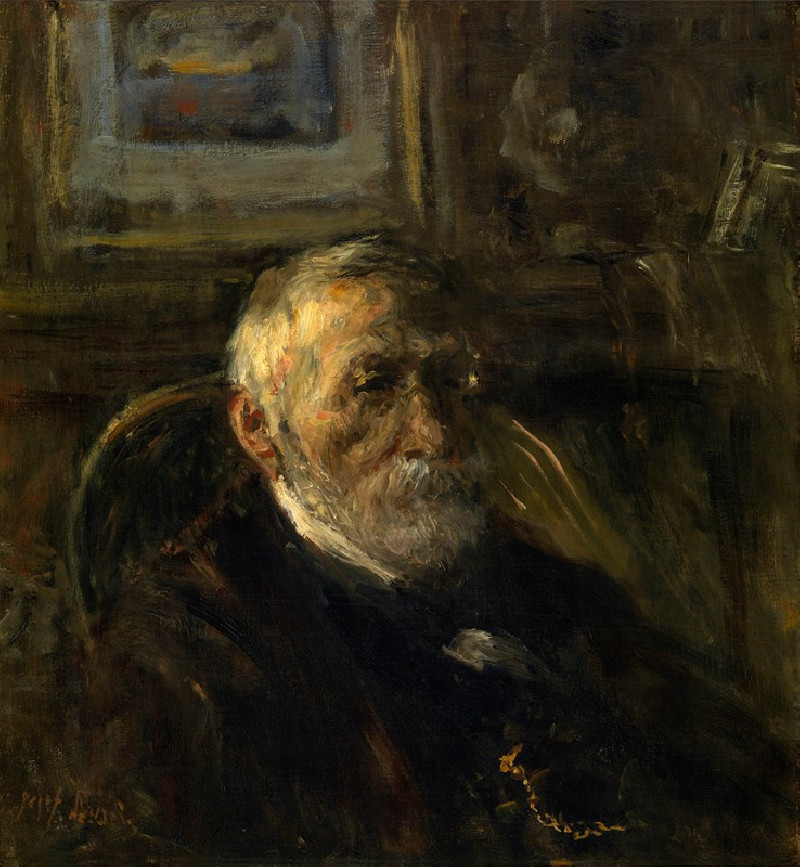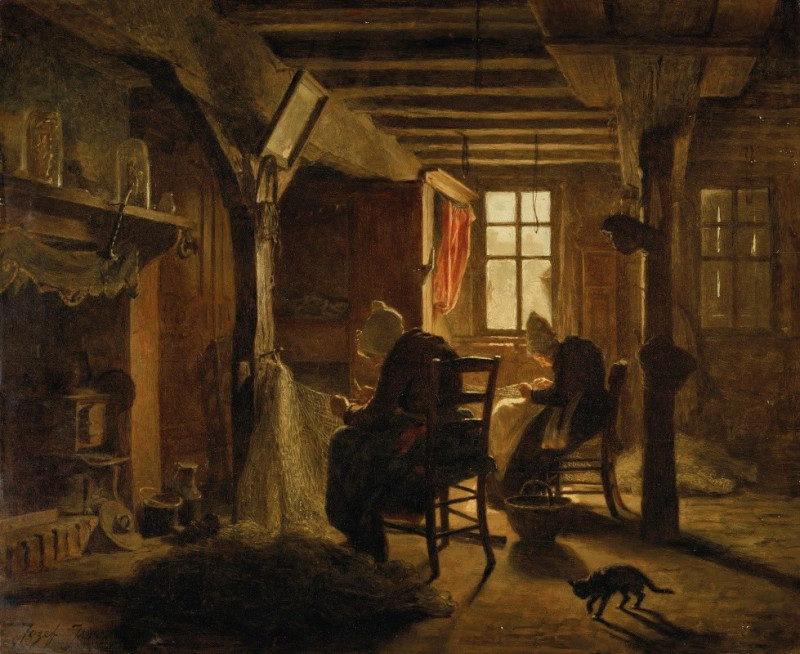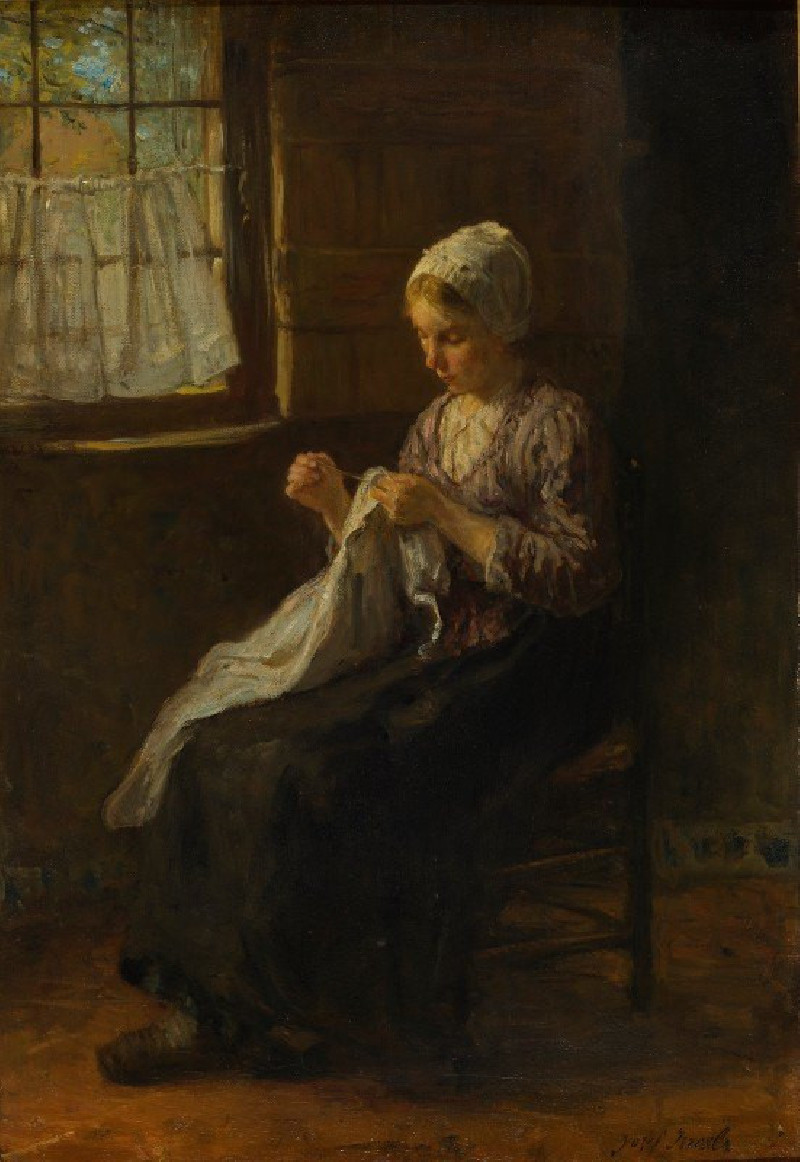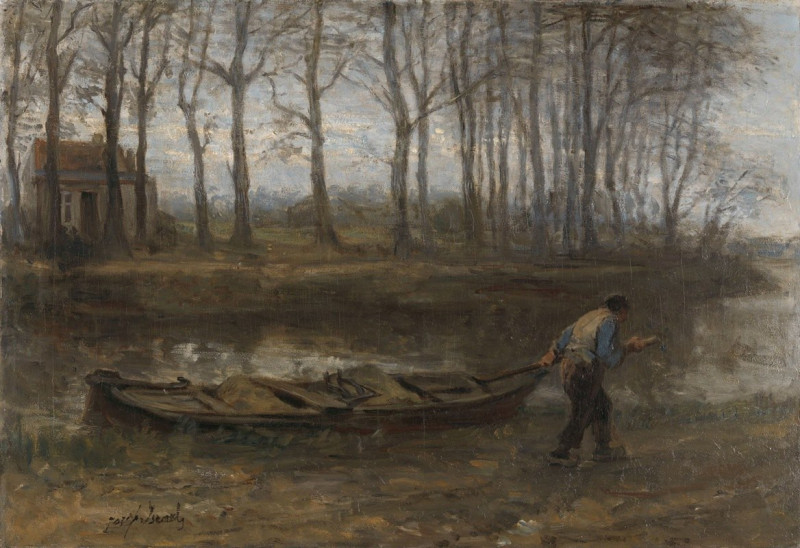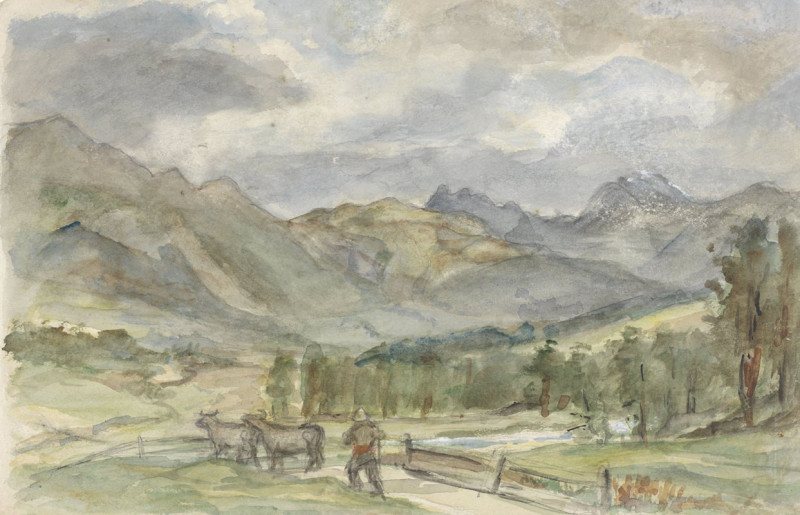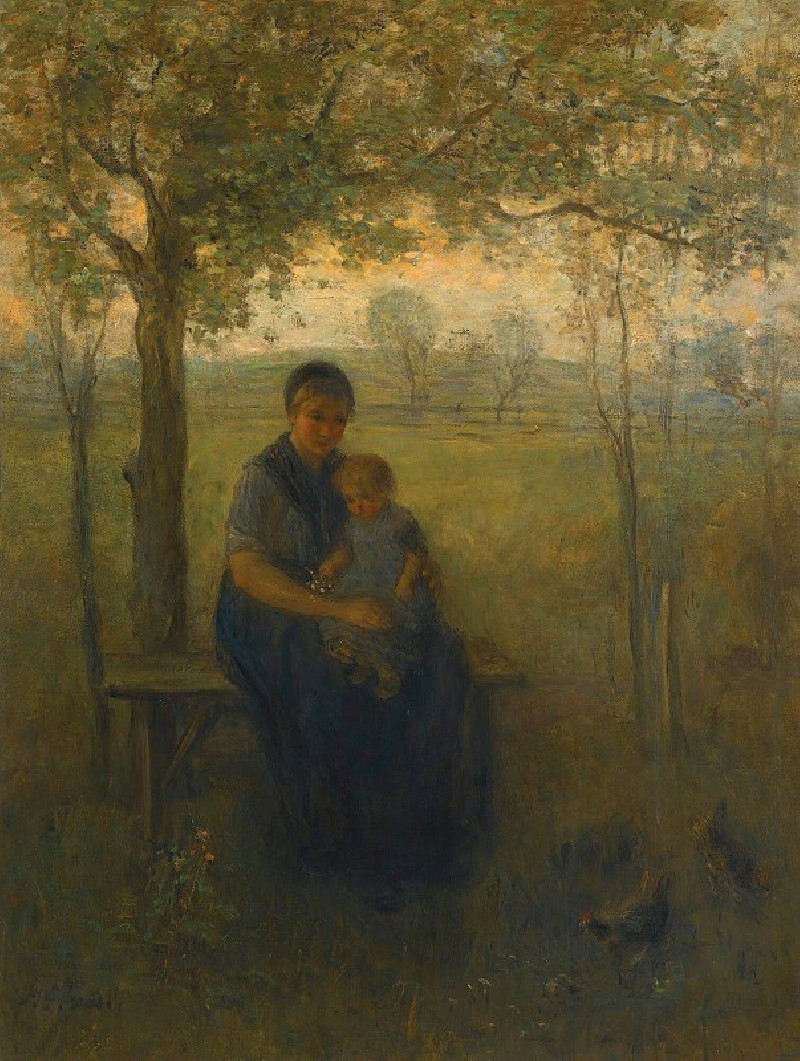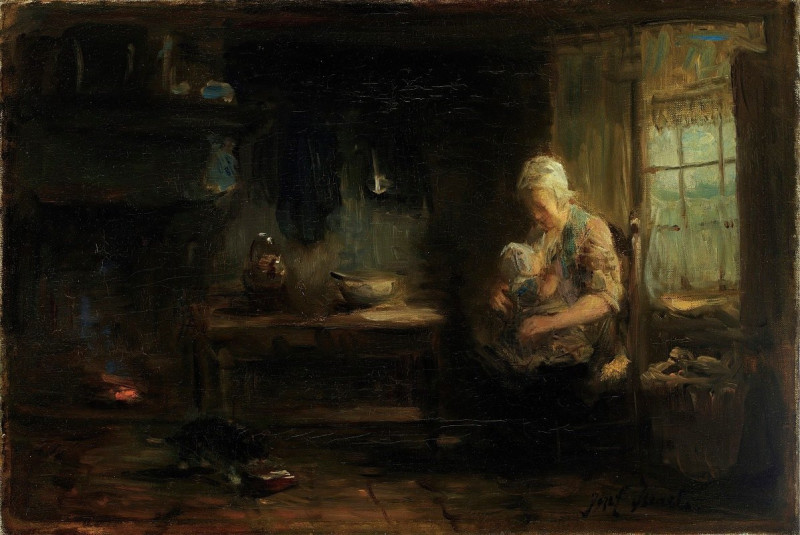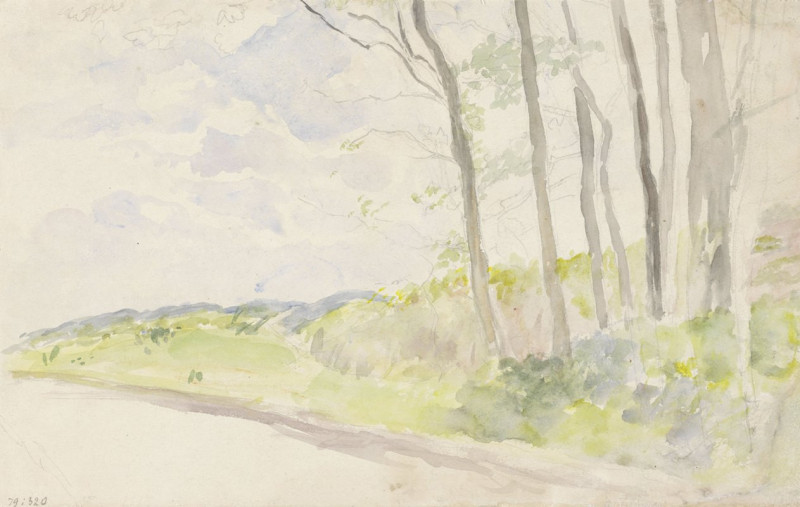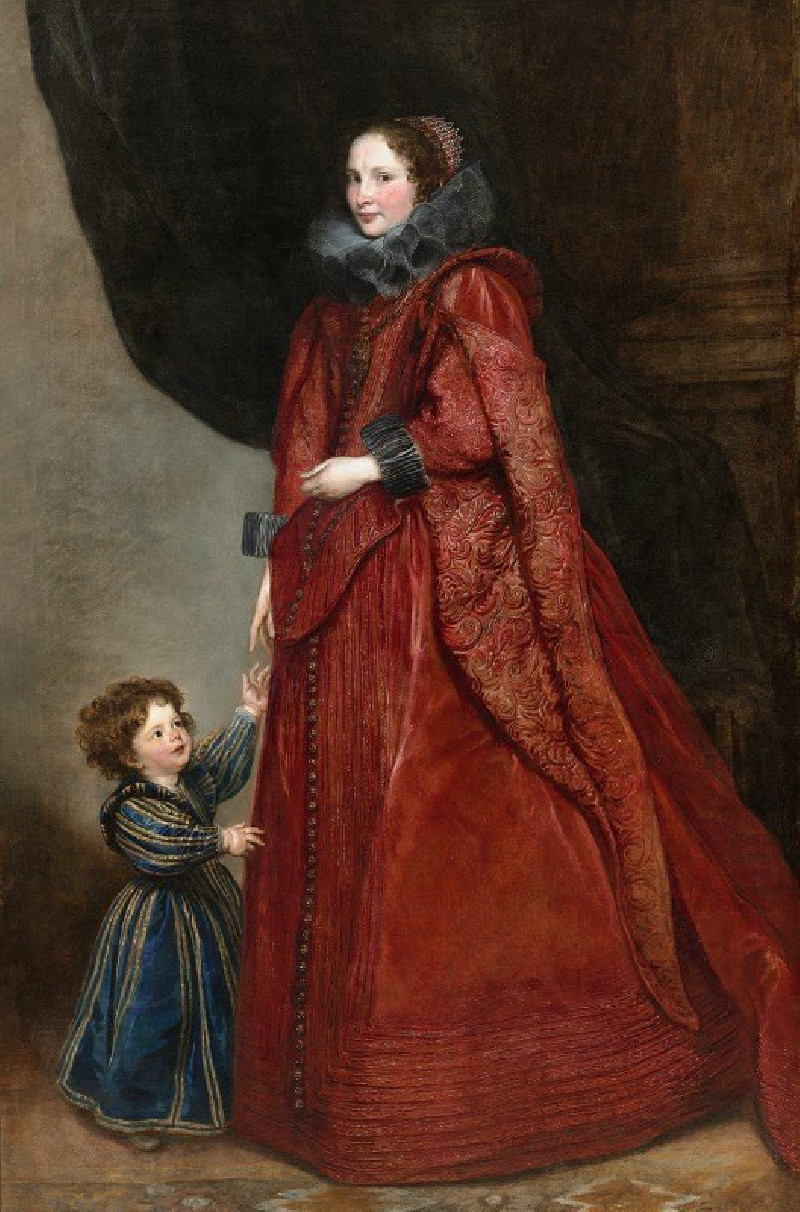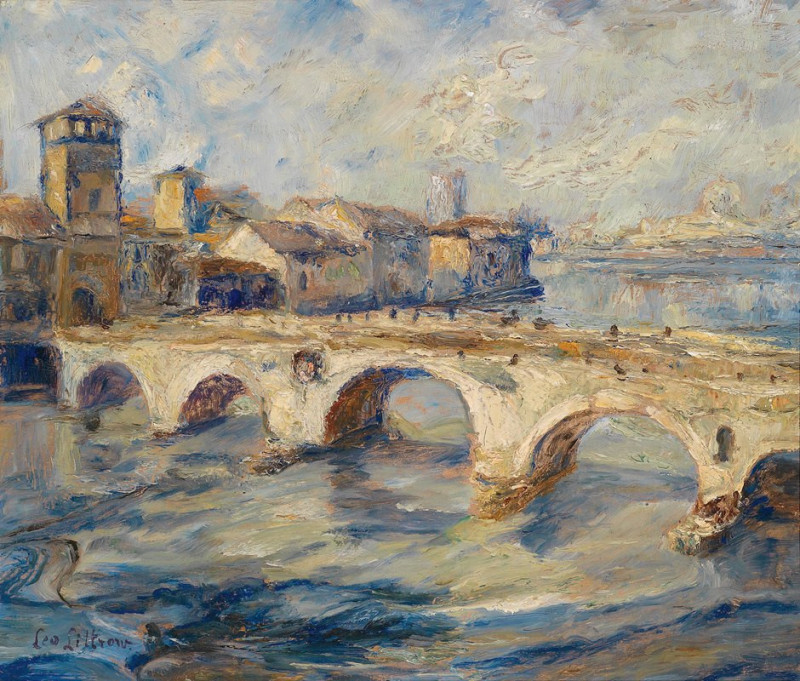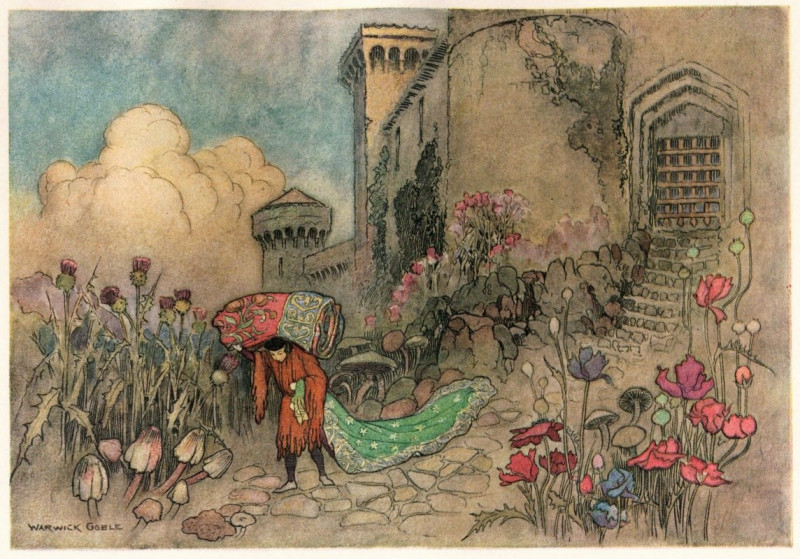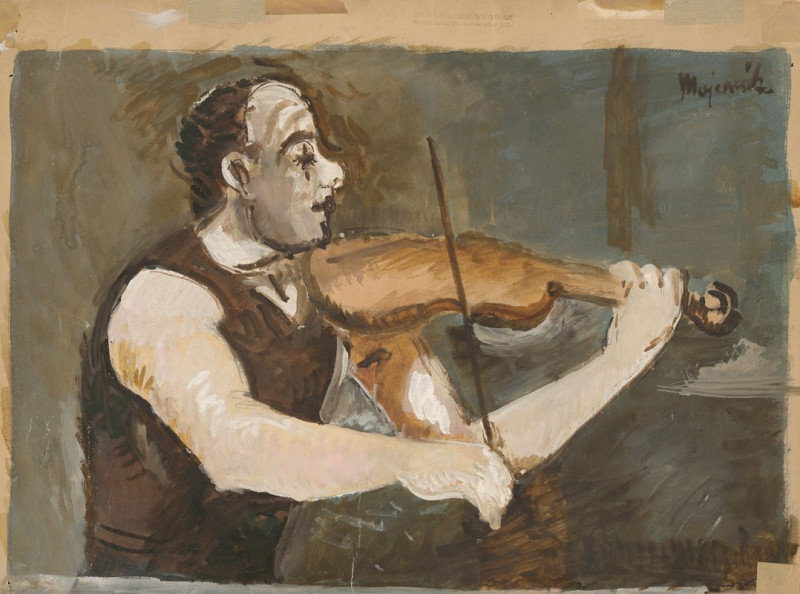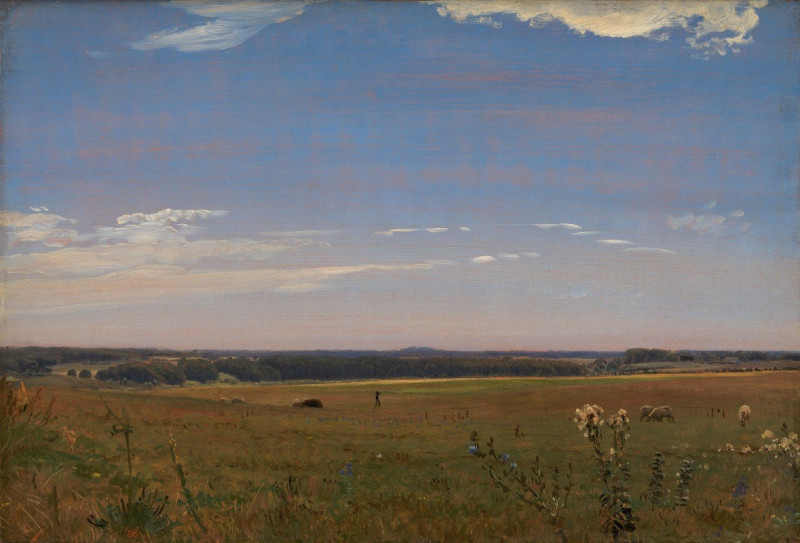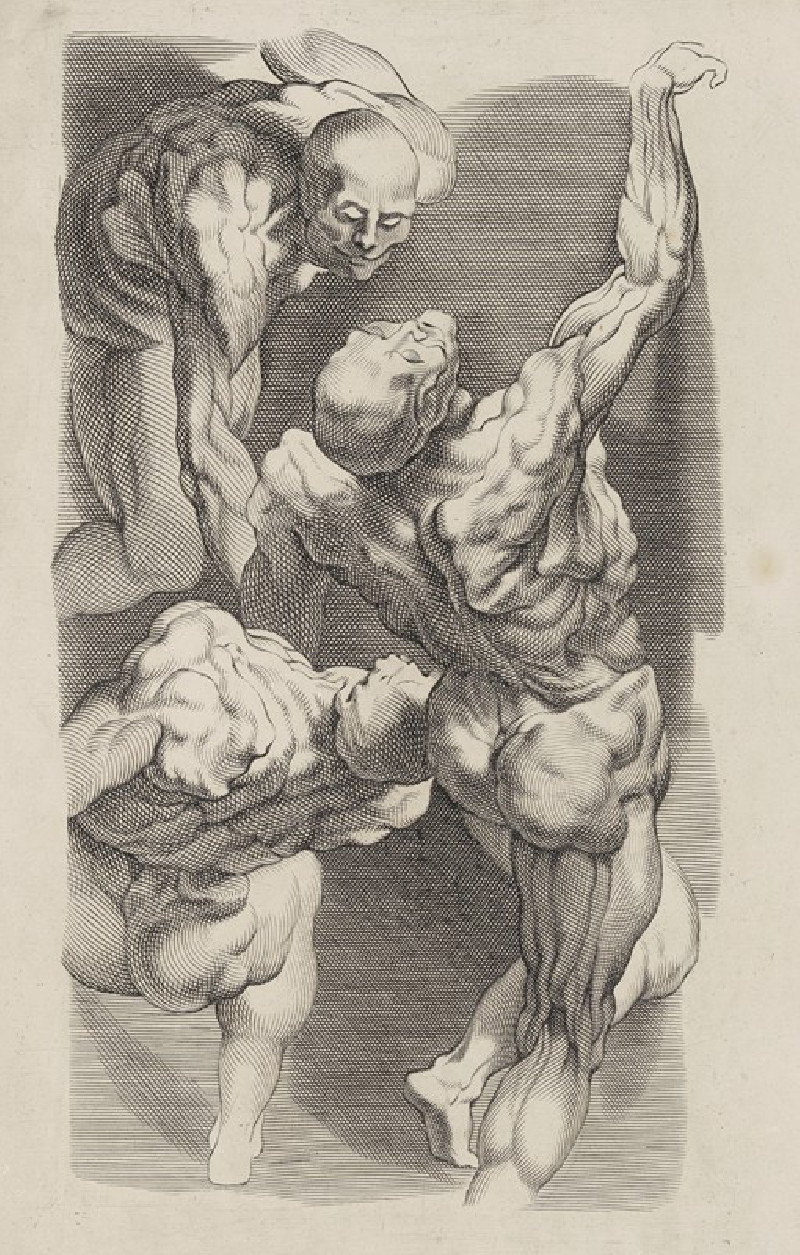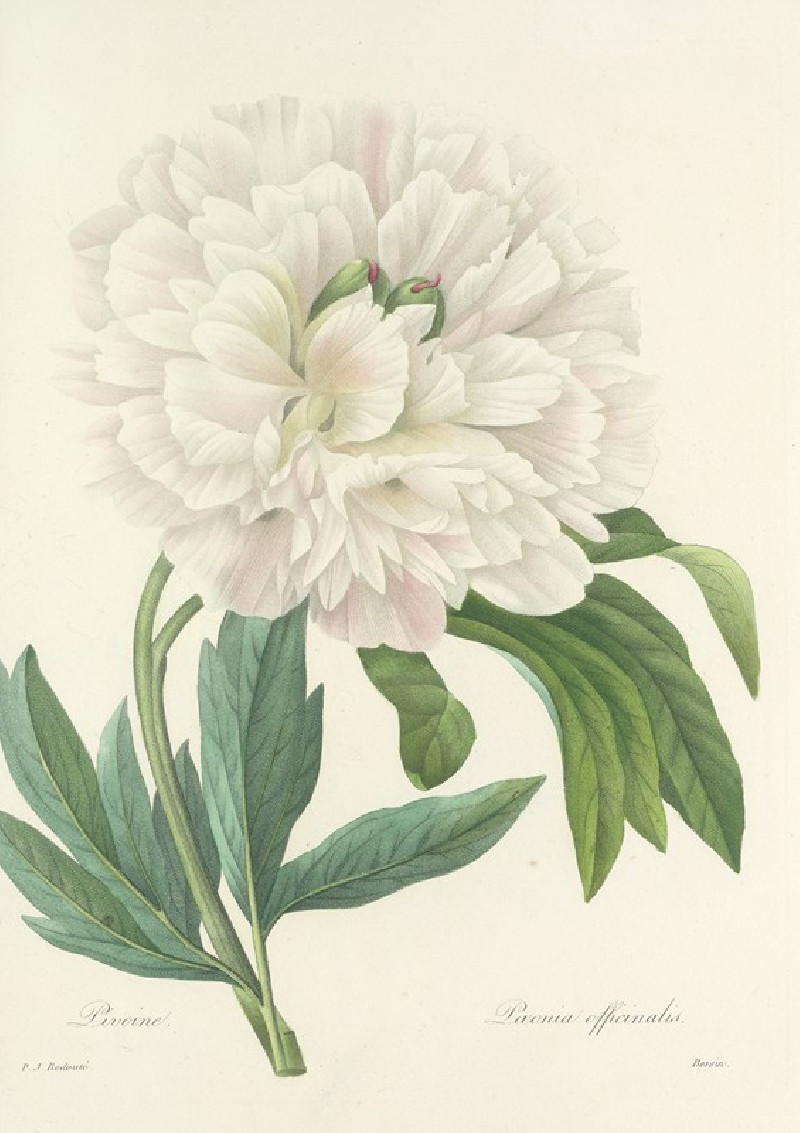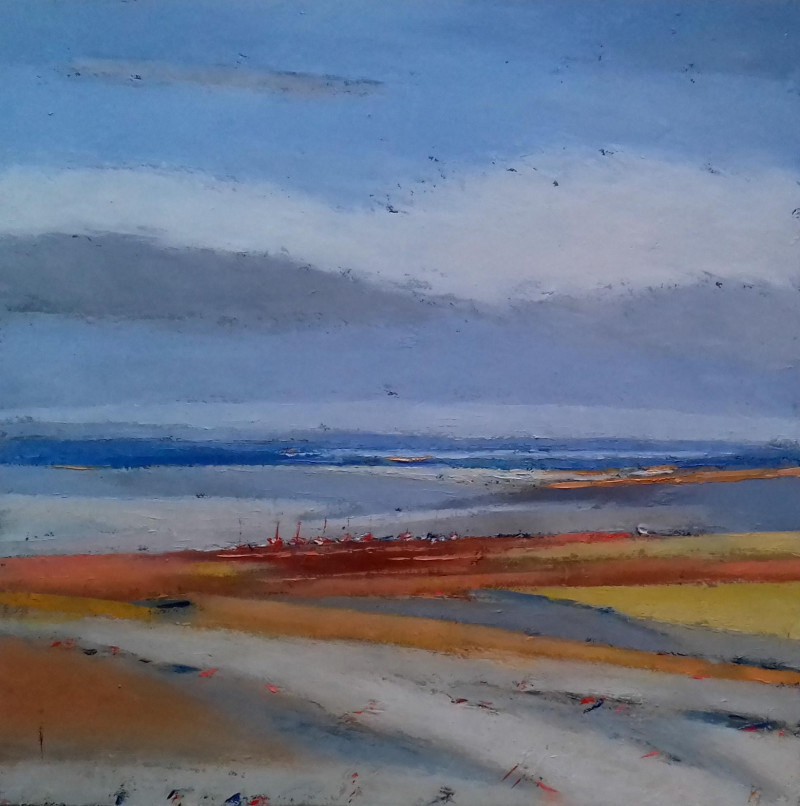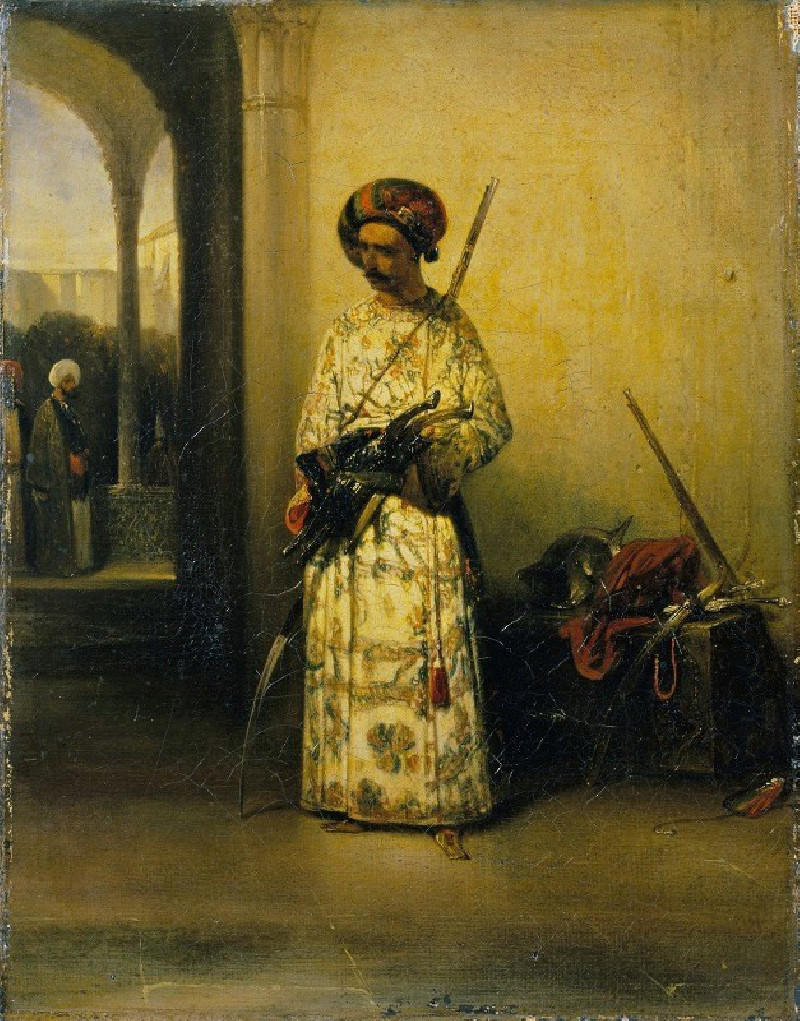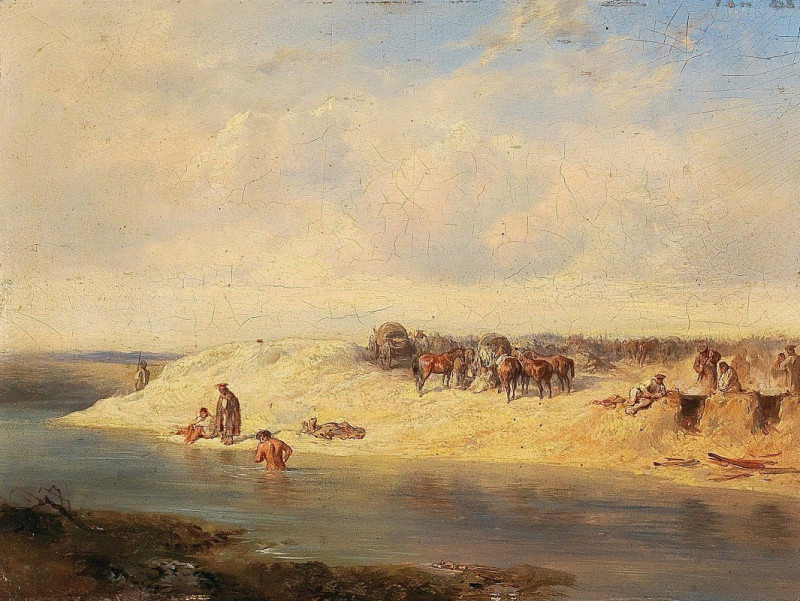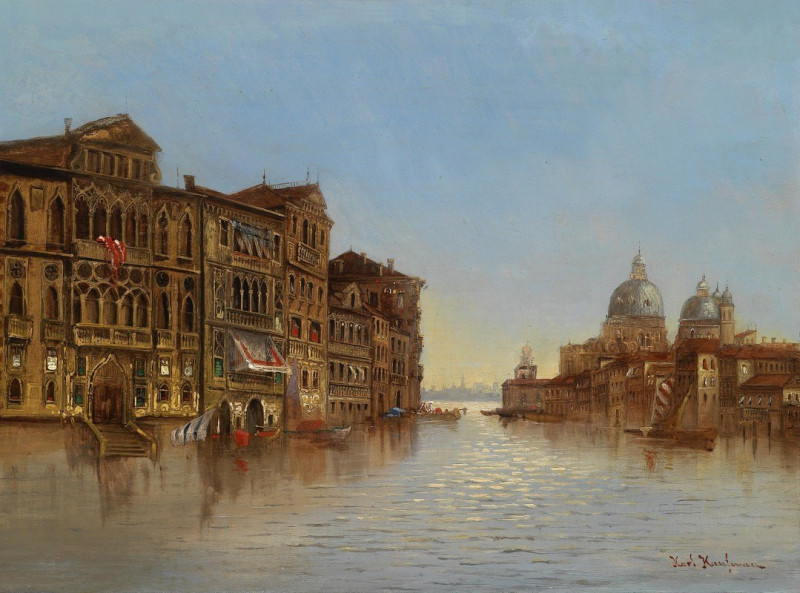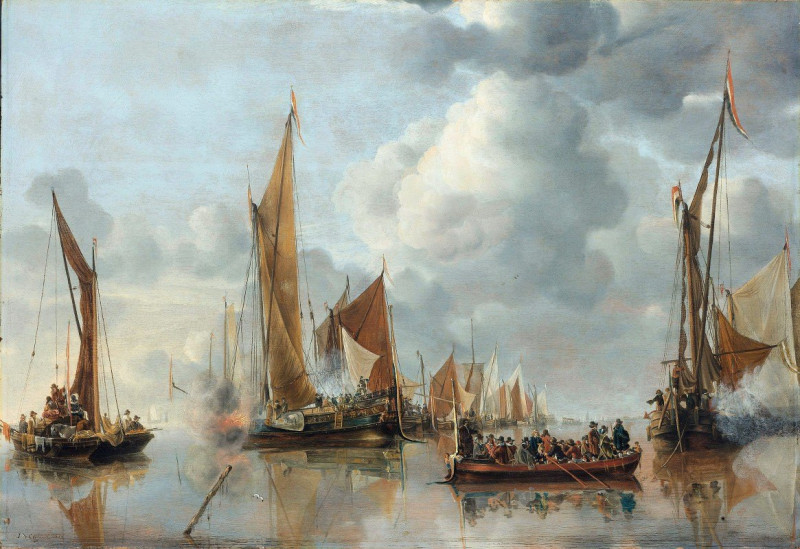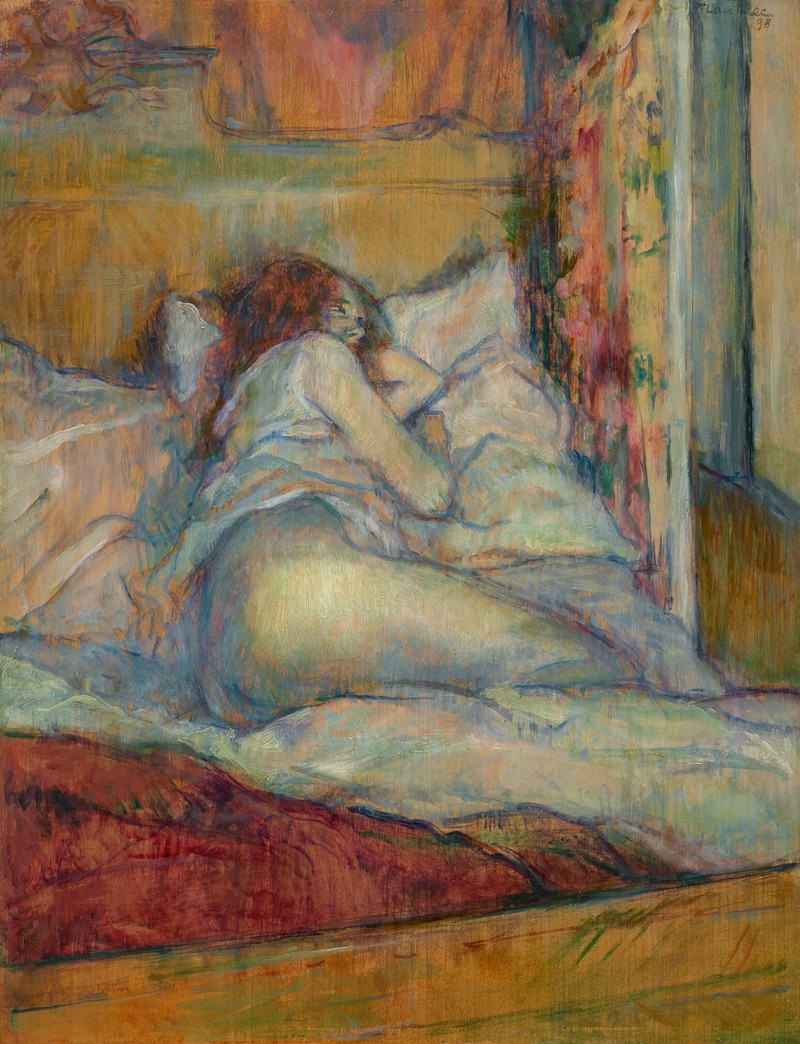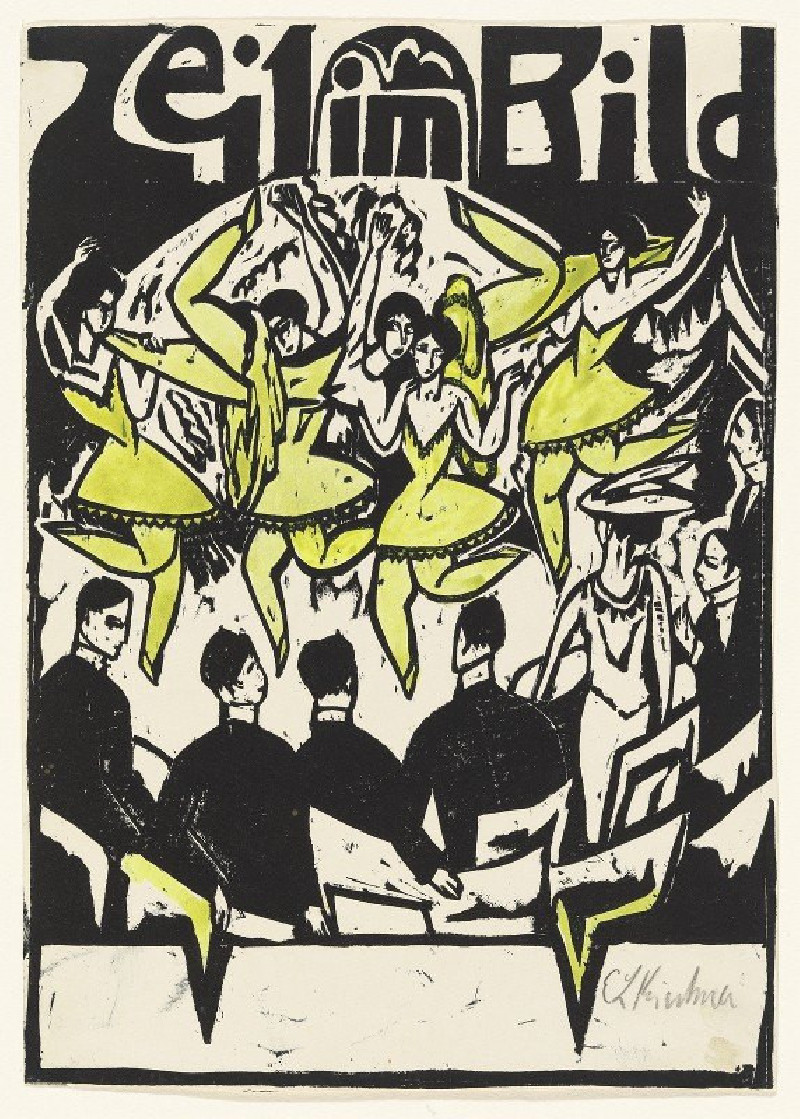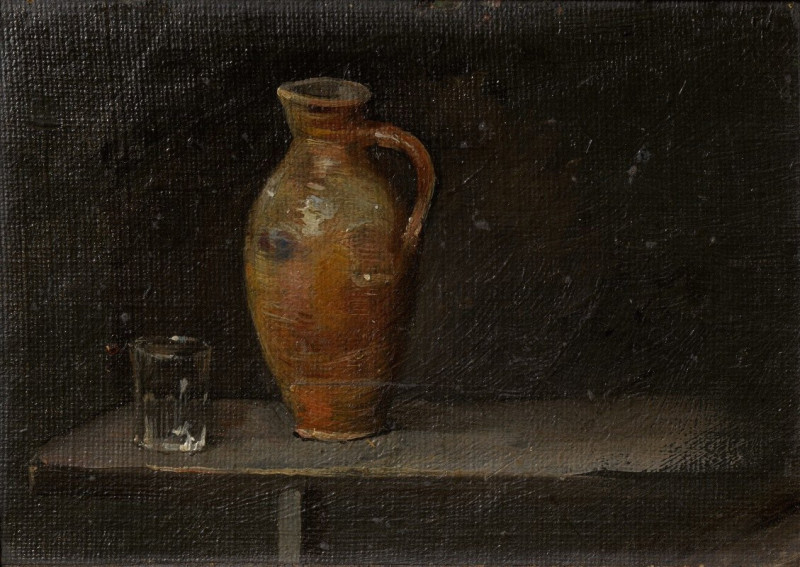Zittende vrouw, waarschijnlijk Michal (1899)
Technique: Giclée quality print
Recommended by our customers
More about this artwork
Jozef Israëls, a pivotal figure in the Dutch school of fine arts, especially known for his realistic yet profoundly touching depictions of human conditions, presents us with the engaging work titled "Zittende vrouw, waarschijnlijk Michal" from 1899. This painting elegantly portrays an elderly woman seated in a thoughtful, almost melancholic posture.Draped in a traditional dark robe complemented by a white headscarf, the subject commands immediate attention amidst a softly muted background that blends warm and earthy tones. The gentle play of light accentuates the thoughtful expression on her face and the delicate folds of her attire, illustrating Israëls’ mastery in capturing the essence of mood and character.“Seated Woman, Likely Michal,” as one might translate the title, could suggest a biblical reference to Michal, the daughter of King Saul and wife to David. This interpretation adds a layer of depth, potentially imbuing the portrait with historical and emotional context, reflecting themes of longing or lamentation.Israëls’ use of broad, confident brushstrokes conveys not only the physical textures but also a vibrancy that belies the somber attire and setting. This painting is exemplary of Israëls’ capacity to narrate complex human stories through his canvases, inviting viewers to linger and ponder the life and emotions of the depicted figure.
Delivery
Returns
Jozef Israëls was a Dutch painter. He was a leading member of the group of landscape painters referred to as the Hague School and, during his lifetime, "the most respected Dutch artist of the second half of the nineteenth century".
He was born in Groningen, of Jewish parents. His father, Hartog Abraham Israëls, intended for him to be a businessman, and it was only after a determined struggle that he was allowed to embark on an artistic career. He studied initially from 1835 to 1842 at the Minerva Academy in his home town Groningen.


